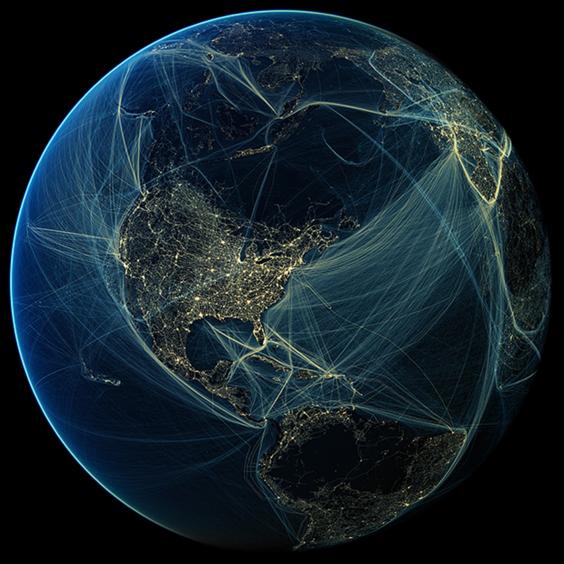What is the Anthropocene?
Now, onto the main question: What is the Anthropocene, anyway? Well, the Anthropocene, like I mentioned above, is the name of a geological era. It's a span of time in the history of our world that has been around nearly as long as humans have, and will likely never end.You may be familiar with geologic eras, but here's two examples to get you started:
Hadean Era: The Hadean Era began with the formation of the Earth, and lasted until 4,000 million years ago. It's named for the Greek God Hades, who ruled the Underworld...if you can guess why, it's because the Earth was mostly a chaotic molten mess at that time. But as for an era you're more familiar with...
Mesozoic Era: The Mesozoic Era lasted from about 252 million years ago to 66 million years ago. It's broken into three periods: the Triassic, the Jurassic, and the Cretaceous, which you'll surely recognize as the periods in which dinosaurs roamed the Earth. If nothing else, you've likely at least heard of the movie "Jurassic Park" and may be pleased to see a blog post dedicated to discussion of the movie.
Currently, we are considered to be in the Quaternary Period of the Cenozoic Era. Within the Quaternary, we are in the Holocene, which is the recent period of warmth that has been the status of the Earth for the last 10,000 years or so.
Now, that's a lot of words and not a lot of answers to the question: What is the Anthropocene?
The Anthropocene is an era of geological history where the Earth, and the geological processes of it, have been altered directly by humans. Humans hunted several megafauna to extinction (like wooly mammoths). When we learned to farm, we began to change the soil and the water, and along the way created new kinds of plants from our agriculture. We settled down and built villages, towns, and cities. We built castles and fortresses. We cleared forests and carved out mountains and changed the direction of rivers.
Human activity has led to the change of the climate. Through agriculture and industry and massive population explosions, humans have pumped more carbon dioxide and methane into the atmosphere than any other species is capable of. This warming has melted glaciers, raised seas, and threatened many other species on the planet for whom evolution does not act quickly enough to save.
Don't let this get you down, though! The Anthropocene isn't all doom and gloom. The unstoppable march of human progress has brought with it a masterful control of the environment, and of ourselves. Without the Anthropocene we wouldn't have modern medicine, or space travel, or cell phones or computers. Because humans have taken so much control of the environment onto themselves, there's a wide variety of possibilities for what the future holds.
The Anthropocene is certainly a nebulous topic. There is some debate over when it started, and that's a debate that may never end. It seeks to define when humans started to cause irreversible change to the planet, and when their change became so massive that they impacted everything else living on Earth.
Hopefully that clears some things up for you! The Anthropocene is an exciting time! It's a time to wonder about the future, about the past, and marvel at our place in the world. It's time to go out and make some changes for the better, yes, but it's also a time for thoughtful introspection. So go do it! And maybe this blog can help!

No comments:
Post a Comment